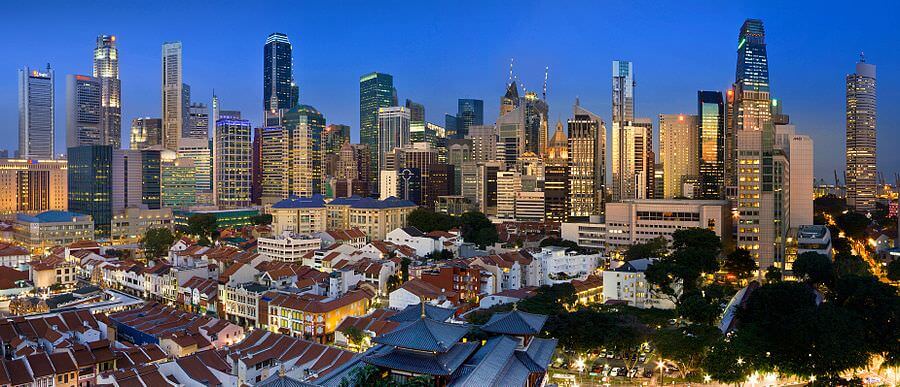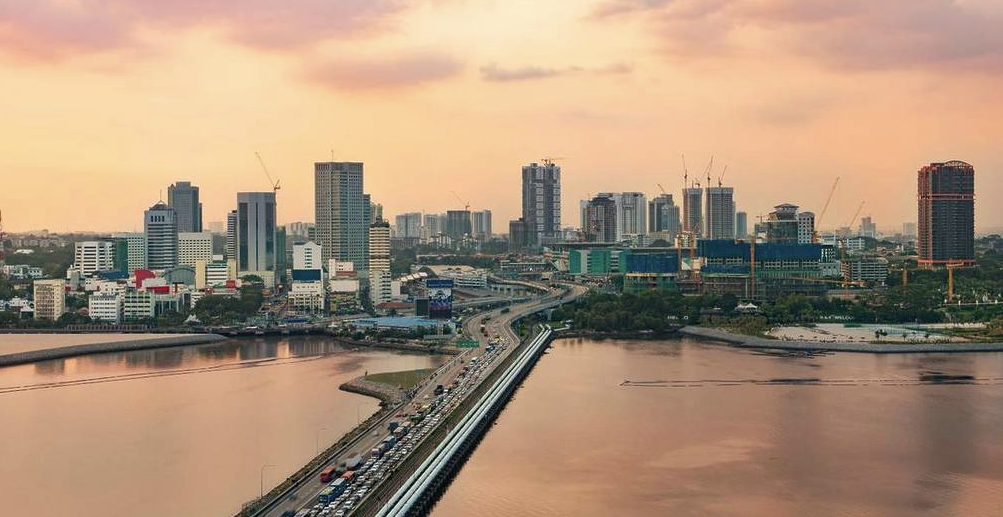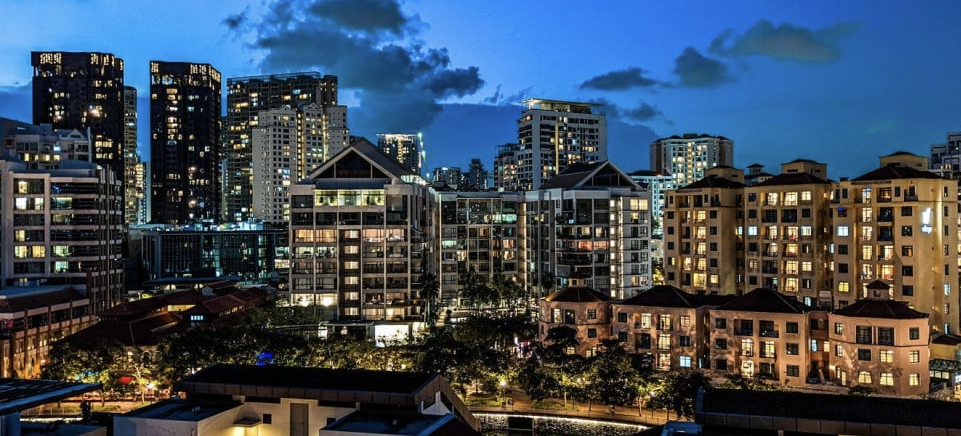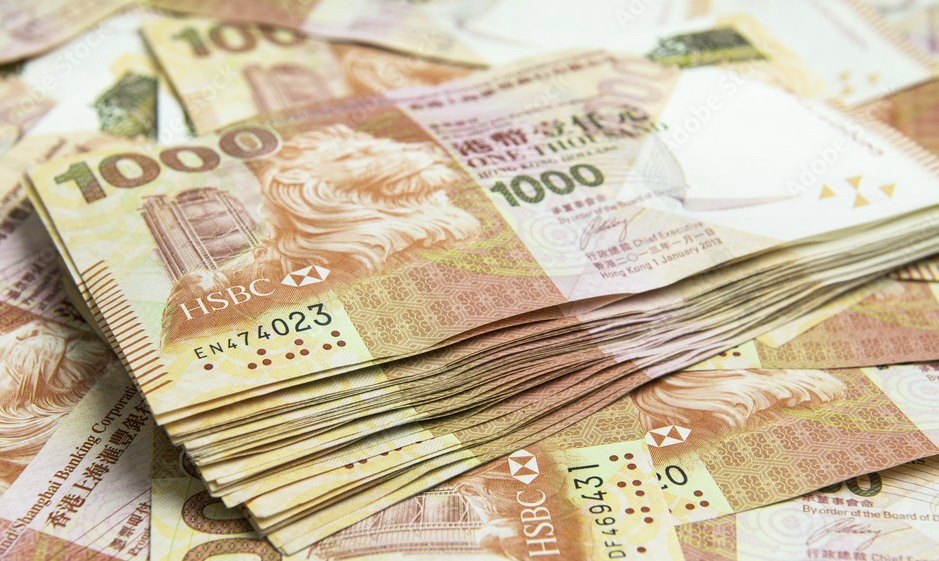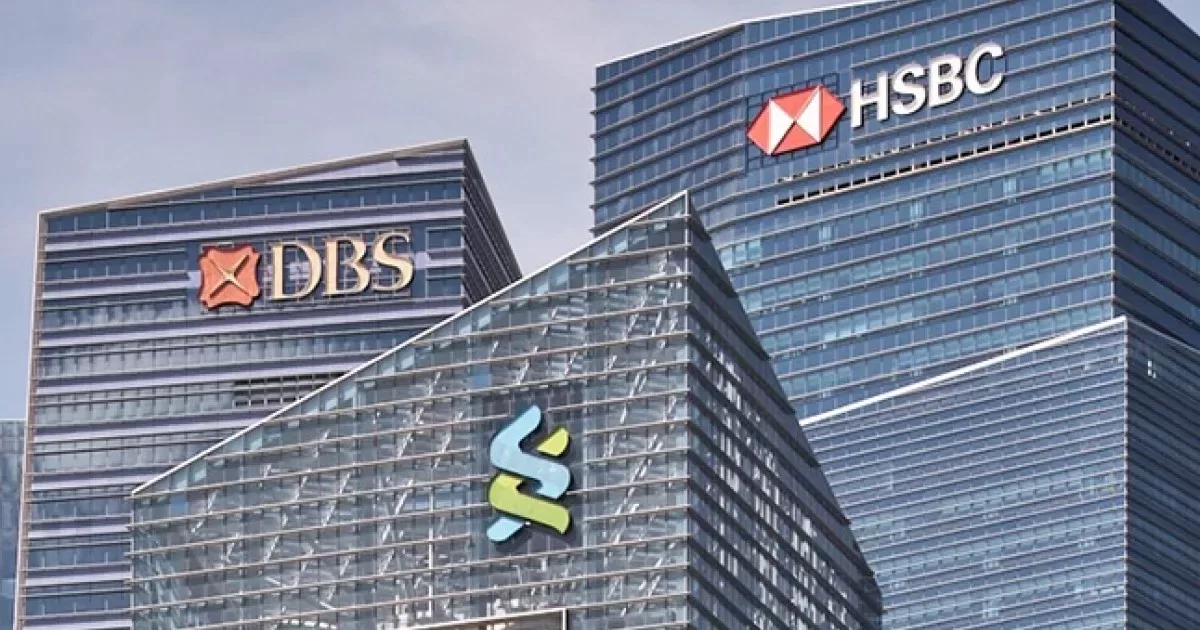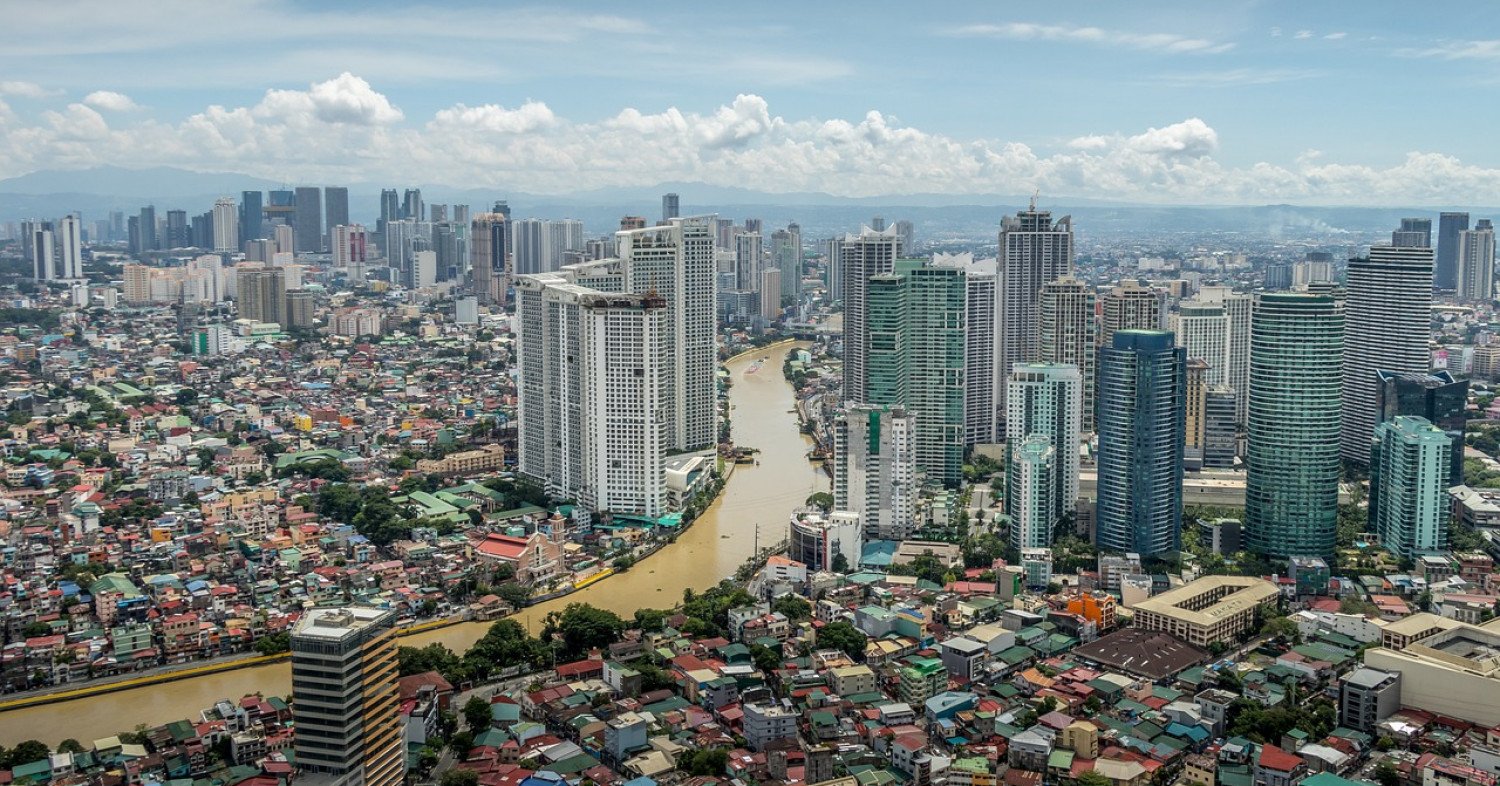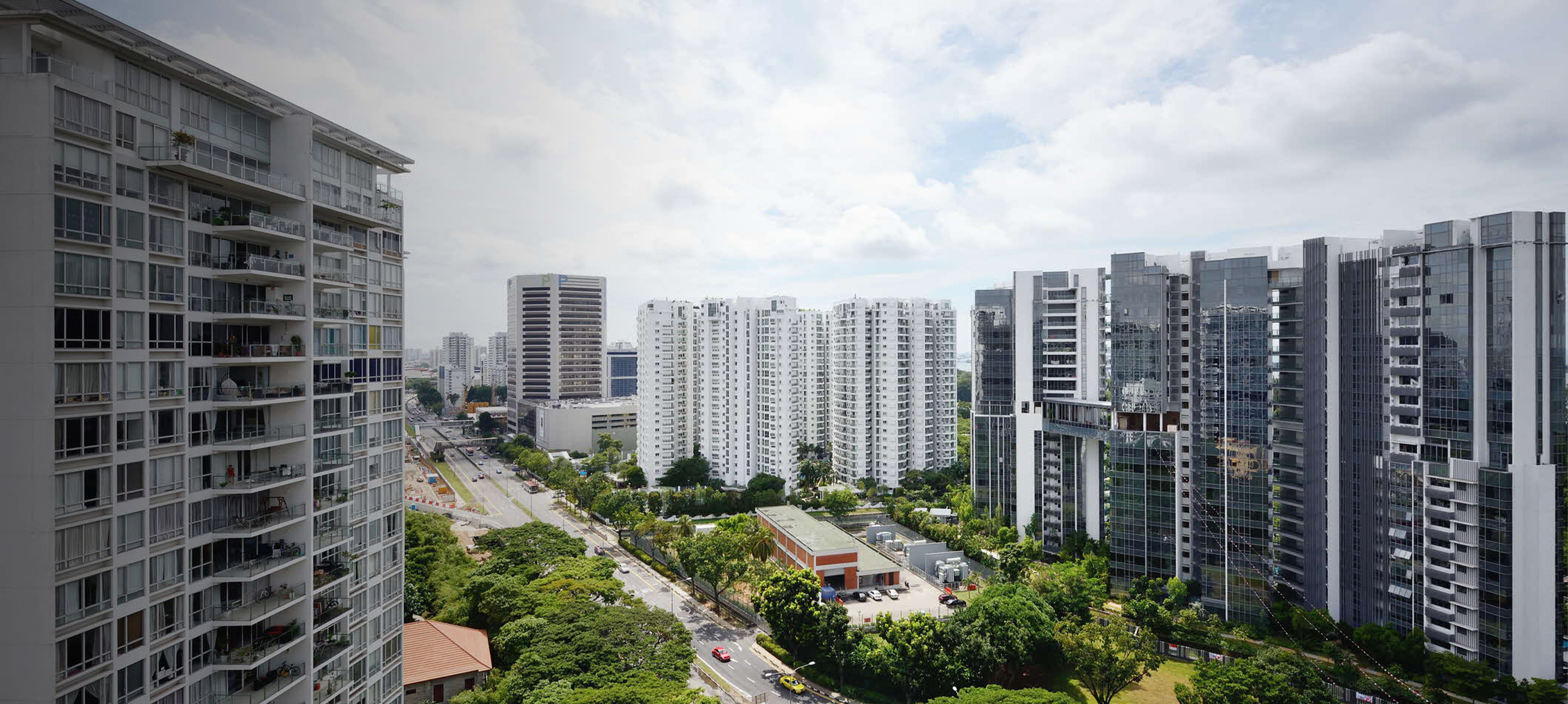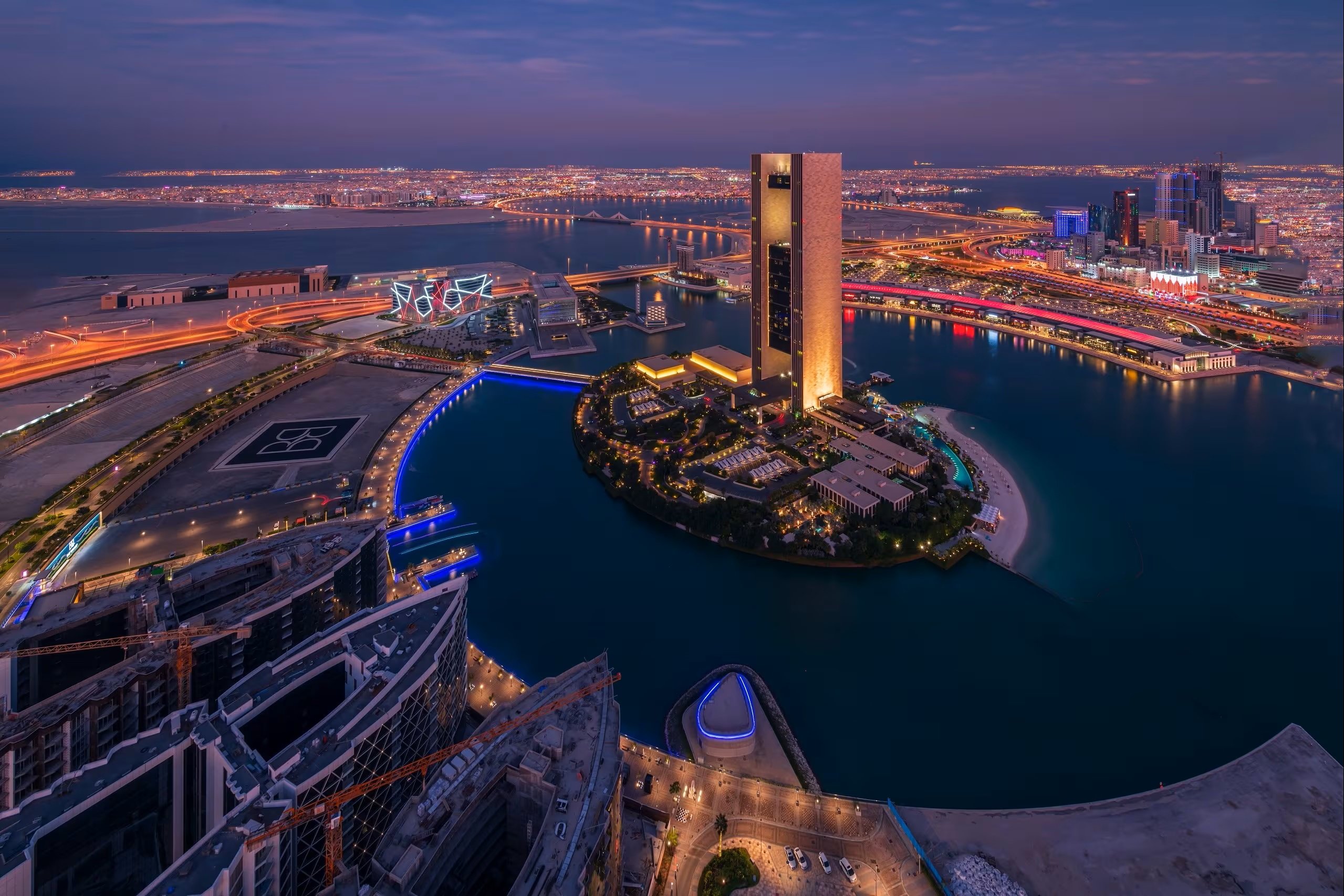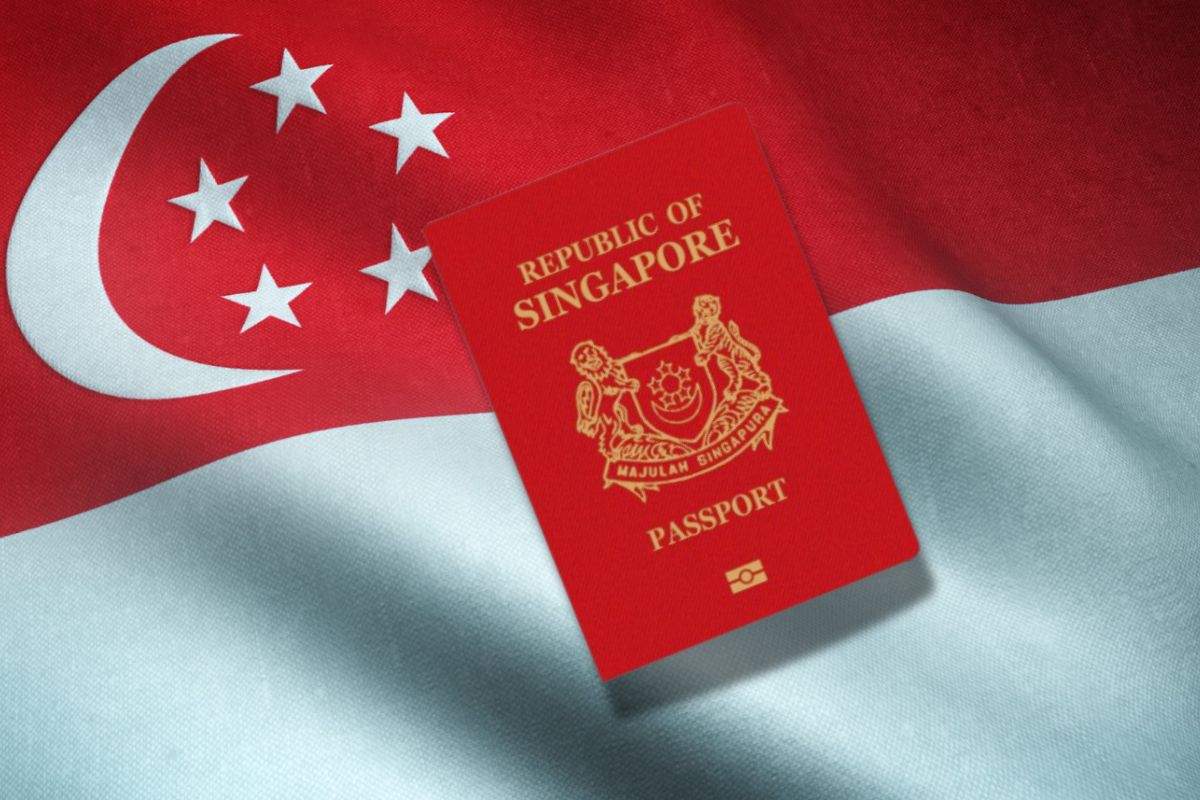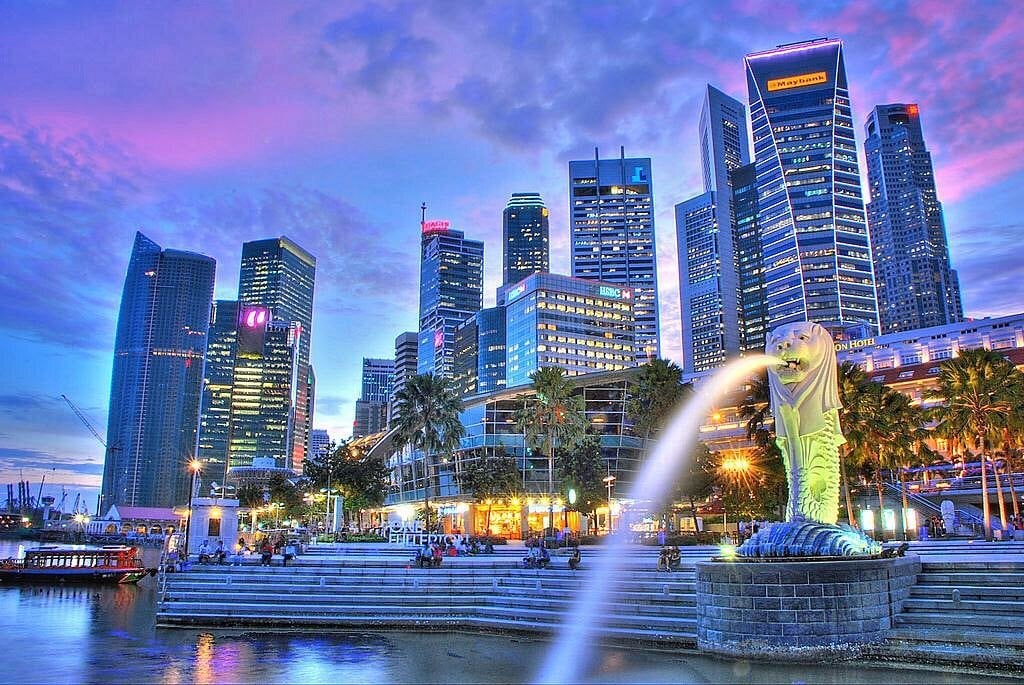Located on the southern tip of the Malay peninsula, the city-state of Singapore is so small that it would be easy to miss on a map.
But despite its small size, Singapore became a significant economic powerhouse and acts as Southeast Asia’s de-facto financial center.
Singapore was poor and virtually unknown several decades ago. Today, it is a global success story with the 4th highest GDP per capita on earth in 2025.
Ever since the 1960s when Singapore became an independent country, the economy has experienced an annualized growth rate of 7.5% on average.
Are you specifically interested in Singapore’s property market? If so, our full guide to purchasing real estate in the Lion City is above.
It may come as no surprise, then, that one out of six households in Singapore are now millionaires. Beyond its wealth, the city-state is also known for ranking among the cleanest cities in the world and has one of the lowest crime rates.
Hundreds of thousands of foreigners and expats have come to call Singapore their home in recent years. Many more have flocked here to do business and make investments.
Clearly, Singapore is one country that shouldn’t be ignored by any serious investor looking to buy real estate or stocks in Asia.
Singapore: Southeast Asia’s Finance Hub
The Asian continent, in a broad context, is home to over 50 different countries spanning all the way from the Middle East to Japan.
Within that large area, there are tons of smaller regional finance hubs. Singapore and Hong Kong are the two most important though, serving as international gateways into Southeast Asia and Greater China respectively.
Singapore helps to feed venture capital, skilled labor, and advanced technology into the Southeast Asia. The ASEAN region includes high-growth markets like Vietnam, Indonesia, and the Philippines.
Keep in mind that by setting up an account with a bank or brokerage firm in Singapore, you aren’t just gaining access to the city itself. You’re also able to trade in Asia’s nearby frontier markets.
Many of these emerging and frontier markets have superior growth prospects compared to Singapore but are difficult to access.
They often require a personal visit (and sometimes even residency!) before you can open an account and buy stocks directly. Going through Singapore is the easiest way to trade stocks across all of Southeast Asia’s financial markets.
And since we’re on the topic of Asian financial hubs, it’s worth mentioning that Singapore has already surpassed Hong Kong in several aspects including private equity and wealth management.
Regions and Districts of Singapore
Because it’s a city-state, the entire country is made up of only one city. With a population of approximately 6 million and an area of 728.6 square kilometers, Singapore claims the second largest population density in the world.
The city can be divided into regions, including the Central Region, East Region, North Region, Northeast Region, and West Region. Contained within these five regions, there are 55 planning areas with many unique neighborhoods.
Central is home to Singapore’s downtown and central business district as well as major tourist locations, such as Chinatown and Marina Bay.
Singapore’s Central area remains ideal for anyone looking to be in the middle of all the action, even though buying property in this prime location will come at a cost of S$20,000 per square meter or more.
East Singapore consists of a number of different neighborhoods between Central and the Changi Airport. Several of these are residential districts like Serangoon and Ang Mo Kio on the edges of Singapore’s northeastern suburbs.
Meanwhile, areas like Bedok and Tampines are more industrial. Yet these suburbs still have plenty of shopping and nightlife options.
East Singapore is a popular expat location due to its proximity to both Central and the airport, as well as the neighborhoods’ slightly more affordable housing costs.
With that said, coastal properties in East Singapore can be as high as the property prices you would find on Orchard Road in Central.
Heading northward, the Woodlands and Sembawang areas border Malaysia along the Singapore Straight. Real estate here is a bit less expensive in comparison to most other parts of Singapore, attracting middle-class Singaporeans and expats.
This region offers a suburban feel with greenery, parks, and significantly less noise.
You’ll enjoy more affordable housing in these Singaporean suburbs, but also must deal with a longer commute to Central if you choose to live in Woodlands or Sembawang.
Jurong in western Singapore is one of the most dense locations in the city, hosting universities such as Nanyang Technical University (NTU) and National University of Singapore (NUS).
Singapore’s only major port, which manages to be one of the busiest in the world despite the country’s small size, is also located in Jurong.
You can learn more about the city’s various neighborhoods and what you should expect to pay in our guide to buying a condo in Singapore.
How to Start a Company in Singapore
Singapore is considered one of the best places in the world for operating a business. In fact, the World Bank has ranked it either first or second in its Ease of Doing Business Index every year since 2006.
The country has created an inviting business environment where it is easy to start a business, enforce contracts, register properties, get credit, pay taxes, trade across borders and more.
It is no wonder that Singapore has become such a powerful economic force in the world – the country has embraced business.
There are five different types of entities for incorporation in Singapore:
1. Sole Proprietorships
2. Partnerships
3. Limited Partnerships
4. Limited Liability Partnerships
5. Private Limited Company
Private Limited Companies, Limited Liability Partnerships, and Sole Proprietorships are the best entities when structuring for maximum tax benefits.
The main steps of starting a business in Singapore are:
– Get company name approved by Accounting and Corporate Regulatory Authority (ACRA).
– Prepare all the company registration documents.
– Register with the ACRA to finalize setting up your Singaporean company.
You’ll also need personal documents such as your passport when you are applying to form your company.
Foreign investors are welcome to invest and form companies within Singapore. You can own 100% of practically any type of business as a foreigner here.
Corporate income tax in Singapore is taxed at 17%. Tax incentives are also offered for new startups in the city. Certain industries also receive special tax exemptions.
If you are interested in doing business in the city-state, check out our article discussing how Singapore may no longer be the best place for business in the near future.
How to Trade Stocks in Singapore
Singapore claims one of the most developed financial markets in the world. It’s also one of the top equity markets in Asia with nearly 800 stocks listed on the SGX.
The Global Financial Centers Index ranked Singapore as the fourth most competitive financial center in the world in 2025; the second highest ranking in all of Asia.
The Singapore Exchange (SGX) was founded in 1999. It has different divisions for each of its business operations.
Specifically, these are SGX Electronic Trading System, SGX Derivatives Trading, SGX Securities Trading, SGX Derivative Clearing, SGX AsiaClear, SGX Reach, and Central Depository Pte Ltd.
Tradable securities in Singapore consist of stocks, exchange-traded funds (ETFs), business trusts, leverage and inverse products, real estate investment trusts (REITs), structured warrants, and American depository receipts.
Derivatives include coal, electricity, equities, equity indexes, freight, interest rates, iron ore, oil, petrochemicals, rubber, and FX. In fact, Singapore handles more Forex trading than any other financial center in Asia.
You can also invest in Singaporean companies through index funds and Singapore stock listings on the US and other international stock markets.
Most large brokerage firms, such as Fidelity and IB, offer access to Singapore exposure ETFs and individual stocks.
The largest Singaporean stock listings on US exchanges include Asian Pharma, DBS Bank, Singapore Airlines, Singapore Telecommunications, Jardine Matheson, and United Overseas Bank.
Several of those equities are sold over-the-counter, while others have secondary and primary listings in the US.
A major benefit of opening a brokerage account directly in Singapore (besides lower brokerage fees) is gaining access to stock markets all across Southeast Asia – not just those listed in Singapore.
Opening a brokerage account in Singapore gives you direct access to stocks in nearby markets including Thailand, Malaysia, Indonesia, Vietnam, and the Philippines as well.
Emerging and frontier markets will see enormous growth in the coming years and provide greater diversification to your portfolio. Trading via Singapore is the easiest way to buy stocks in these otherwise difficult-to-access countries.
And thanks to the global reach of the city’s economy, you can also use a Singapore brokerage account to invest in places like Japan, China, and even Europe.
To help you get started, we wrote a full guide buying stocks in Singapore as a foreigner from the perspective of a foreign investor.
Singapore’s Currency: The SGD
The nation’s official currency is the Singapore Dollar (SGD). As of early 2025, 1.30 SGD is equal to 1 USD.
The Singapore Dollar is one of the fifteen most traded currencies in the world and is considered a hedge against other major international currencies.
In our analysis, we found many reasons to list the SGD as one of the safest currencies in Asia. Singapore’s role as a major financial hub for banking and wealth management means that demand for the currency will only continue.
Chinese capital flight and Singapore’s strong export numbers will also contribute to the strength of Singapore dollar in the long-term. In fact, the currency is already showing an uptrend.
In reality, there are few safer alternatives in Asia than the Singapore Dollar. Even with its recent depreciation, if you bought and held SGD beginning in the early 2000s, you would have gained above 20% against both the Euro and USD today.
The Singapore Dollar is one of the most stable currencies in Asia and the world. You can rest assured that any assets denominated in SGD will be well-protected from market volatility.
Doing Business in Singapore
With an average annualized growth rate of 7.5% since the country’s independence in 1963, Singapore achieved what is perhaps the fastest development and industrialization in history.
While that growth has slowed considerably in recent years, the city-state’s GDP still grew an average of 5.4% over the past decade–an incredible feat for such a developed economy.
For comparison purposes, GDP growth in the United States during that same period averaged 2.1%. The European Union barely surpassed 1% during the same time period.
Many service-based industries are growing rapidly, although manufacturing has slowed recently. Manufacturers are already making changes that will help them course-correct and return to their regular rate of growth, but it may take time.
Nevertheless, Singapore’s strength lies in its ability to innovate and adapt to changing market conditions.
Singapore, in part because of its small size, became proficient at producing high-value goods that take up less space such as pharmaceuticals and refined petroleum.
This is particularly important because one of Singapore’s few weaknesses is that it hosts very limited natural resources of its own.
Some of the biggest industries in Singapore include telecommunications, banking, manufacturing, tourism, and transportation.
Other important industries in Singapore are electronics manufacturing, oil refining, chemicals, biomedical sciences, and mechanical engineering.
Additionally, Singapore has the second largest casino gambling market in the world after Macau. It’s the largest oil-rig production and repair hub as well.
Singapore’s major imports are comprised of petroleum, diamonds, gold, and copper. Their major exports are refined petroleum, diamonds, gold, refined copper, and raw tin.
Looking to the future, Singapore is set to continue its growth and maintain its place as one of Asia’s main financial hubs alongside Hong Kong.
Cryptocurrency in Singapore
Thanks to its stable politics, business environment, and banking infrastructure, Singapore is one of the most crypto-friendly countries in the world.
There’s little doubt that Singapore led the way in accepting blockchain technology, with crypto entrepreneurs setting up exchange platforms, B2B payment systems, and new tokens here for over a decade.
However, Singapore has recently put on the brakes, halting Binance’s services in the country and turning down more than 100 licenses for crypto-related businesses.
Singapore aims to stay supportive of the crypto sector but is clearly taking precautions to avoid any potential risks that the technology presents.
Meanwhile, cryptocurrency exchange and trading remain legal in Singapore. Crypto in Singapore is classified as goods and the Goods and Services Tax (GST) is applied to anyone buying coins.
Because Singapore has no capital gains taxes though, it remains one of the best places to trade cryptocurrency in Asia.
Buying Real Estate in Singapore
Singapore’s real estate market is one of the most expensive in the world due to limited land supply and high demand.
The government has had to frequently implement cooling measures, including increasing transfer taxes and applying restraints on multiple home buyers and foreign investors.
Both groups will pay at least 25% more in taxes than other buyers. Yet even with these limitations, foreigners are still allowed to own condominium units in Singapore with a freehold title.
Foreigners can also purchase and own houses, bungalows, and property under six stories tall with government approval. In most cases, ownership will likely be approved if it benefits Singapore’s economy.
In some areas of the city-state, you may need to work harder to find developers willing to sell freehold condos.
For example, many properties in Central are sold on a long-term leasehold basis because developers do not wish to give up this prime real estate. And those who do manage to find a freehold property should expect to pay a premium for it.
Despite the high prices, buying property in Singapore is relatively easy thanks to the country’s efficient systems and the fact that English is the official language, which eliminates the need for (and challenges of) working with a translator.
It’s also important to note that Singapore has a dual housing market of subsidized and non-subsidized housing. Because of the expensive nature of Singapore’s real estate market, the government subsidizes much of the housing for its citizens.
Clearly, foreigners aren’t allowed to purchase this type of subsidized housing meant for Singaporean citizens and PRs.
Overall, investing in real estate in Singapore will be pricy yet potentially profitable. Rental yields are low (you can expect a measly 2% to 3%) but capital appreciation is almost guaranteed thanks to the city’s status as a global financial hub.
That, alongside continued population growth, will ensure demand while the general scarcity of land will inevitably limit supply.
Private Equity and VC in Singapore
Private equity and venture capital in Singapore play a huge role in the country’s economy. The nation is home to more family office assets and VC funds than anywhere else in Asia.
Because of Singapore’s highly-developed business infrastructure, it’s easy for venture capital firms to navigate and it is a safe place to launch an international startup.
Several of the most successful Singapore startups are Acronis, AirTrunk, Grav, Lazada, Razer, SEA, and Trax.
SEA started as Garena back in 2009 and is now worth over S$50 billion today, trading in New York under the symbol NYSE:SE.
According to the ACRA, there are over 400,000 businesses registered in Singapore.
After growing quickly over the past few years, Singapore’s private equity has slumped a bit when compared to the growth of its surrounding frontier market countries.
Some of the top private equity and venture capital firms in Singapore according to the Venture Capital and Private Equity Association are:
- 500 Startups (Singapore)
- Gobi Partners
- Golden Gate Ventures
- JAFCO Investments
- Jungle Ventures
- Sequoia Capital
- Singtel Innov8
Should You Invest in Singapore?
The Lion City is a great place to invest and do business. We’re talking about a country that has already proven itself over the decades as a successful investment destination.
Singapore has grown for a long time. Is there still room for even more appreciation in its stock and real estate markets?
Many argue that the city-state was a great investment opportunity if you had started investing ten or twenty years ago, but the moment has passed now that the country has become expensive and well-known.
Regardless, there are still plenty of solid investment opportunities in Singapore today… even if there are less than before.
The nation is generally open and welcoming to foreign investors and expats, and it is one of the best countries to invest in 2025.
Singapore doesn’t have the same kind of investment opportunities as Asia’s frontier markets. Yet it does offer unique benefits only available in a country with the kind of stability, innovation, and infrastructure that Singapore brings to the table.
Investing in Singapore: FAQs
Can Foreigners Own Property in Singapore?
Foreigners are allowed to own freehold condos in Singapore under their own name, on the same terms as a local citizen.
However, land and any type of property that sits on it, like houses and commercial buildings, are tightly restricted.
You can technically buy land in Singapore as a foreigner. However, it requires getting specific permission from the government and proving that the purchase is in the national interest.
In practice, this usually means an investment of S$50 million or higher.
Is Trading Crypto in Singapore Legal?
Yes, cryptocurrency in Singapore is regulated and taxed.
Several large exchanges are based in Singapore and trading crypto here is fully legal.
How Much Does Property in Singapore Cost?
Singapore is one of the world's most expensive cities to buy real estate. You should expect to pay about $20,000 per square meter in the city center.
However, you're looking at budget housing or locations out in the suburbs, you'll find property for sale in Singapore for about half that price.
How Can I Trade Stocks in Singapore?
If you aren't based in Singapore, the easiest way is through a brokerage based in your home country. Large brokers including Fidelity and IBKR support trading stocks in Singapore.
You'll save on commission fees and obtain access to Southeast Asia's emerging market stock exchanges by opening a local brokerage account in Singapore though. This is possible to set up remotely.
Can Foreigners Own a Business in Singapore?
Yes, foreigners can own 100% of shares in almost any Singaporean company.

Singapore
Capital
N/A
Currency
Singapore Dollar
Population (2025)
5,870,750
GDP (2025)
US$561.73 billion
GDP Per Capita
US$93,956
GDP Growth (5 Year Avg.)
3.94%
Skip the Next Western Recession
Learn the best places to invest – and where to avoid – by downloading our free Investment Cheat Sheet.
READ MORE ABOUT SINGAPORE
READY TO INVEST IN THE WORLD’S FASTEST GROWING COUNTRIES?
Join 50,000+ monthly readers. Discover property, stocks, and other investments that will drive global growth in the 21st century.

